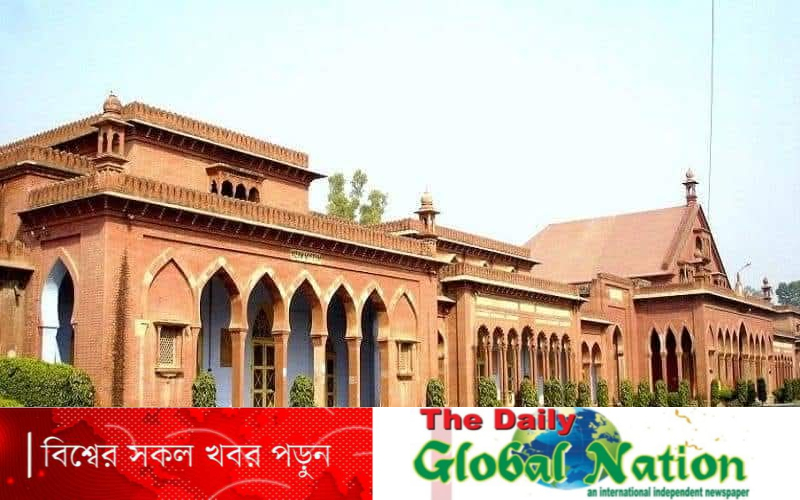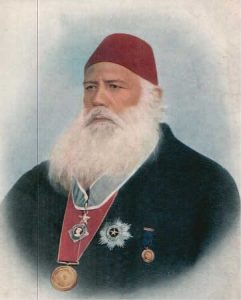
Satyagraha Research Foundation, Mother Tahira Charitable Trust and Various Social organizations paid heartiest tribute on the 127th Death Anniversary of great social reformer,
 founder of Aligarh Muslim Central University, Sir Syed Ahmed Khan. Today, on 27 March 2025,
founder of Aligarh Muslim Central University, Sir Syed Ahmed Khan. Today, on 27 March 2025,
an inter-faith prayer meeting was organized in Satyagraha Bhawan, the auditorium of Satyagraha Research Foundation, on the 127th death anniversary of late Sir Syed Ahmed Khan, the great social reformer and founder of Aligarh Muslim Central University, in which representatives of various social organizations, intellectuals and students participated. On this occasion, International Peace Ambassador cum Secretary General Satyagraha Research Foundation Dr. Ajaz Ahmad Advocate, Dr. Suresh Kumar Agarwal, Senior Journalist cum Founder Mother Tahira Charitable Trust Dr. Amanul Haque, Dr. Shahnawaz Ali, Dr. Amit Kumar Lohia, Senior Social Worker Navidun Chaturvedi and Convener of West Champaran Kala Manch Shaheen Parveen jointly paid tribute and said that from today to today 127 years ago on 27 March 1898, late Sir Syed Ahmed Khan died of Cardiac arrest. His entire life was dedicated to social upliftment. He was an Indian teacher and social reformer, who started modern education for Indians, especially Muslims. He founded Aligarh Muslim University. His efforts started the education revolution in Aligarh, in which intellectuals and social reformers worked to educate Indian Muslims. Syed Ahmed gave shelter to non-military British in his house on humanitarian grounds during the First Indian War of Independence of 1857, but was not at all their supporter. Later, he wrote a book about that war: Asbab-e-Baghawat-e-Hind, in which he criticized the policies of the British Government. He was the most influential Indian Muslim leader of his time. He emphasized on making Urdu the collective language of Indians and Indian Muslims. With the help of the local people of Moradabad, he established a modern madrasa in Moradabad in 1858. In 1863, he also established a modern school in Ghazipur. He established the Scientific Society, which published translations of many educational books and brought out a bilingual magazine in Urdu and English. The events of the last years of the 1860s proved to be a turning point in his activities. In 1867, he was transferred to Banaras (present-day Varanasi) situated on the banks of the Ganges, the centre of religious beliefs of Hindus. Around the same time, a movement began to replace Urdu, the language nurtured by Muslims, with Hindi. He tried to replace Urdu with Hindi in this movement and in the publications of the Scientific Society. Hence, during his visit to England in 1869-1870, he prepared a plan for great educational institutions like 'Muslim Cambridge'. On his return to India he formed a committee for this purpose and started publishing an influential journal Tahdhib-ul-Akhlaq (Social Reform) for the upliftment and reform of Muslims.

He formed the All India Muhammadan Educational Conference in 1886 whose annual conferences were held at various places to promote education among Muslims and to provide them a common platform.
In May 1875 he established a Muslim school, 'Madrasatul Uloom' in Aligarh and after his retirement in 1876 he laid the foundation for converting it into a college. In spite of orthodox opposition to his projects the college progressed rapidly and in 1920 it was converted into Aligarh Muslim University.
He died on 27 March 1898 due to cardiac arrest. Through this forum we pay our tribute to him.
সম্পাদক ও প্রকাশক মোঃ মাহবুবুর রহমান পিএইচডি